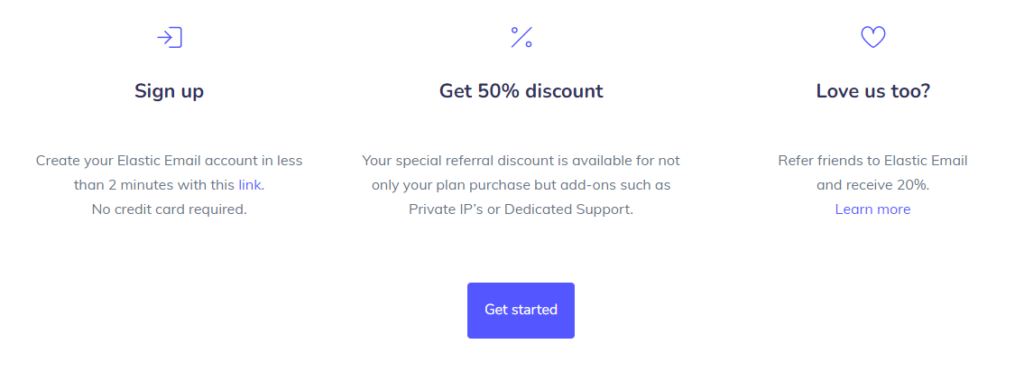Why is Content So Important for SEO?
Why is Content So Important for SEO?
Discover why content is essential for improving your website’s SEO and driving more traffic to your site.
Learn tips and best practices for creating SEO-friendly content that engages your readers and improves your search engine visibility.
What is SEO?
Search Engine Optimization (SEO) is the practice of optimizing your website to improve its visibility and ranking in search engine results pages (SERPs).
SEO involves a combination of techniques and strategies that help search engines understand the content on your website and determine its relevance and authority for specific search queries.
By optimizing your website for SEO, you can increase the amount of organic (non-paid) traffic to your website, improve your online visibility, and ultimately drive more business to your organization.

The Role of Content in SEO
When it comes to improving your website’s search engine visibility, content is king. In fact, content plays a critical role in SEO, as it is the primary way that search engines determine the relevance and authority of a website for specific search queries.
In this section, we’ll explore the ways in which content impacts SEO, including its role in establishing relevancy, the importance of keywords, and the impact of content length and quality.
We’ll also examine the ways in which user engagement and link building can contribute to a website’s overall SEO strategy.
How Content Helps SEO
1. Content Relevancy
One of the most important factors that search engines consider when ranking websites is relevancy.
The content on your website needs to be relevant to your target audience and the search queries they use to find your website.
When your content is relevant, it can help to improve your search engine rankings and drive more traffic to your website.
2. Keywords and SEO
Keywords are the search terms that people use to find information on the internet.
By including relevant keywords in your content, you can help search engines to understand what your website is about and improve your chances of ranking higher in the search results.
However, it’s important to use keywords strategically and avoid keyword stuffing, which can actually harm your SEO efforts.
3. Content Length and Quality
The length and quality of your content are also important factors that can impact your SEO rankings.
Long-form content tends to perform better in search results, as it provides more value to your visitors and signals to search engines that your website is an authoritative source of information.
Additionally, high-quality content that is well-written and informative can help to increase user engagement and improve your website’s credibility.

4. User Engagement
User engagement is a measure of how much time visitors spend on your website and how they interact with your content.
When visitors spend more time on your website and engage with your content, it sends positive signals to search engines that your website is a valuable resource for your target audience.
This can help to improve your search engine rankings and drive more traffic to your website.
5. Link Building
Link building is the process of acquiring backlinks to your website from other authoritative sources on the internet.
Backlinks are important because they signal to search engines that other websites consider your content to be valuable and worth linking to.
This can help to improve your search engine rankings and increase your website’s visibility online.
Drag & Drop Sales Funnel Builder for WordPress
Types of Content for SEO
There are several types of content that you can create to improve your website’s SEO rankings, including:
Blog Posts
Blog posts are an excellent way to regularly generate new, relevant content for your website. You can improve your search engine rankings and drive more traffic to your website by targeting specific keywords and providing valuable information to your visitors.
Infographics
Infographics are visual representations of information that are easy to read and share. You can assist enhance your website’s exposure and attract more traffic to it by developing infographics that are relevant to your target demographic and shareable on social media.
Videos
Videos are another type of content that can help to improve your website’s SEO rankings. By creating high-quality videos that are relevant to your target audience and optimized for search engines, you can improve your website’s visibility and engage your visitors.
E-books and Whitepapers
E-books and whitepapers are longer-form content that provide valuable information to your visitors. By creating e-books and whitepapers that are relevant to your target audience and optimized for search engines, you can improve your website’s authority and drive more traffic to your website.
Social Media Posts
Social media posts are a great way to promote your content and drive traffic to your website. By sharing your blog posts, infographics, videos, and other content on social media, you can increase your website’s visibility and engage your target audience.
Help us build the future of email!

Tips for Creating SEO-friendly Content
Creating high-quality, relevant content is essential for improving your website’s SEO. Some tips and best practices for creating content that is optimized for search engines.
1. Identify Relevant Topics and Keywords
To create content that resonates with your audience and helps improve your SEO, it’s important to identify relevant topics and keywords. Conduct keyword research to understand the search queries that your target audience is using and use these insights to guide your content strategy.
2. Create High-quality Content
Once you’ve identified your topics and keywords, it’s time to create high-quality content that provides value to your readers. Your content should be informative, engaging, and well-researched, and should provide a unique perspective or insight that sets it apart from other content on the web.
3. Optimize Content for SEO
To maximize the impact of your content on your website’s SEO, it’s important to optimize it for search engines. This includes incorporating relevant keywords into your content, optimizing your meta descriptions and title tags, and ensuring that your website’s architecture is easy to navigate and crawl.
4. Promote Content on Social Media
To reach a wider audience and drive more traffic to your website, it’s important to promote your content on social media. Share your content on your organization’s social media profiles and engage with your followers to build a community around your brand.
5. Update Content Regularly
To ensure that your content remains relevant and up-to-date, it’s important to update it regularly. This can help improve your website’s search engine rankings by signaling to search engines that your content is fresh and authoritative.

Conclusion
In conclusion, creating high-quality, relevant content is essential for improving your website’s SEO. By following the guidelines and best practices provided in this article, you can establish a thorough content strategy that helps increase your search engine visibility, bring more traffic to your website, and eventually expand your business.






